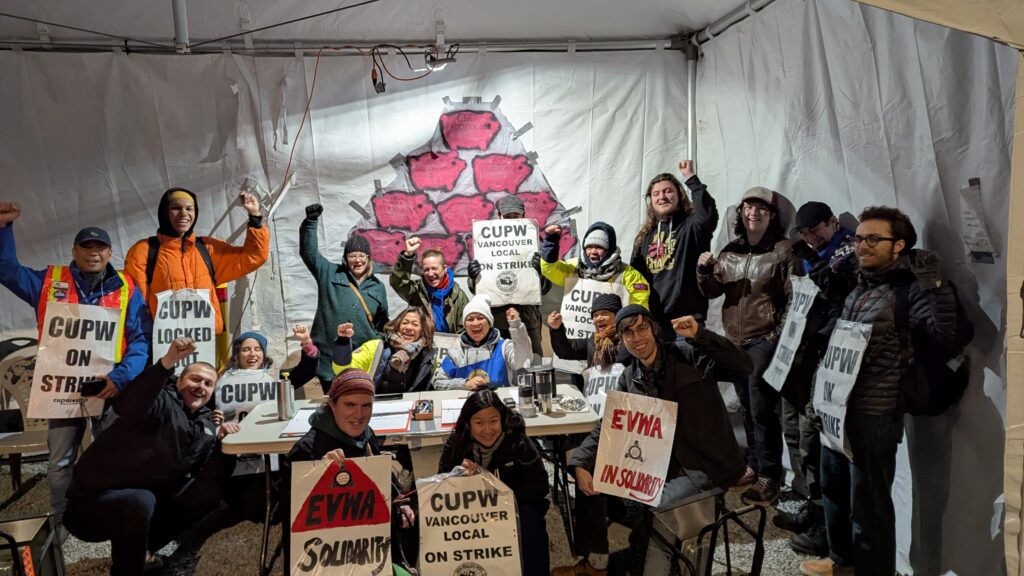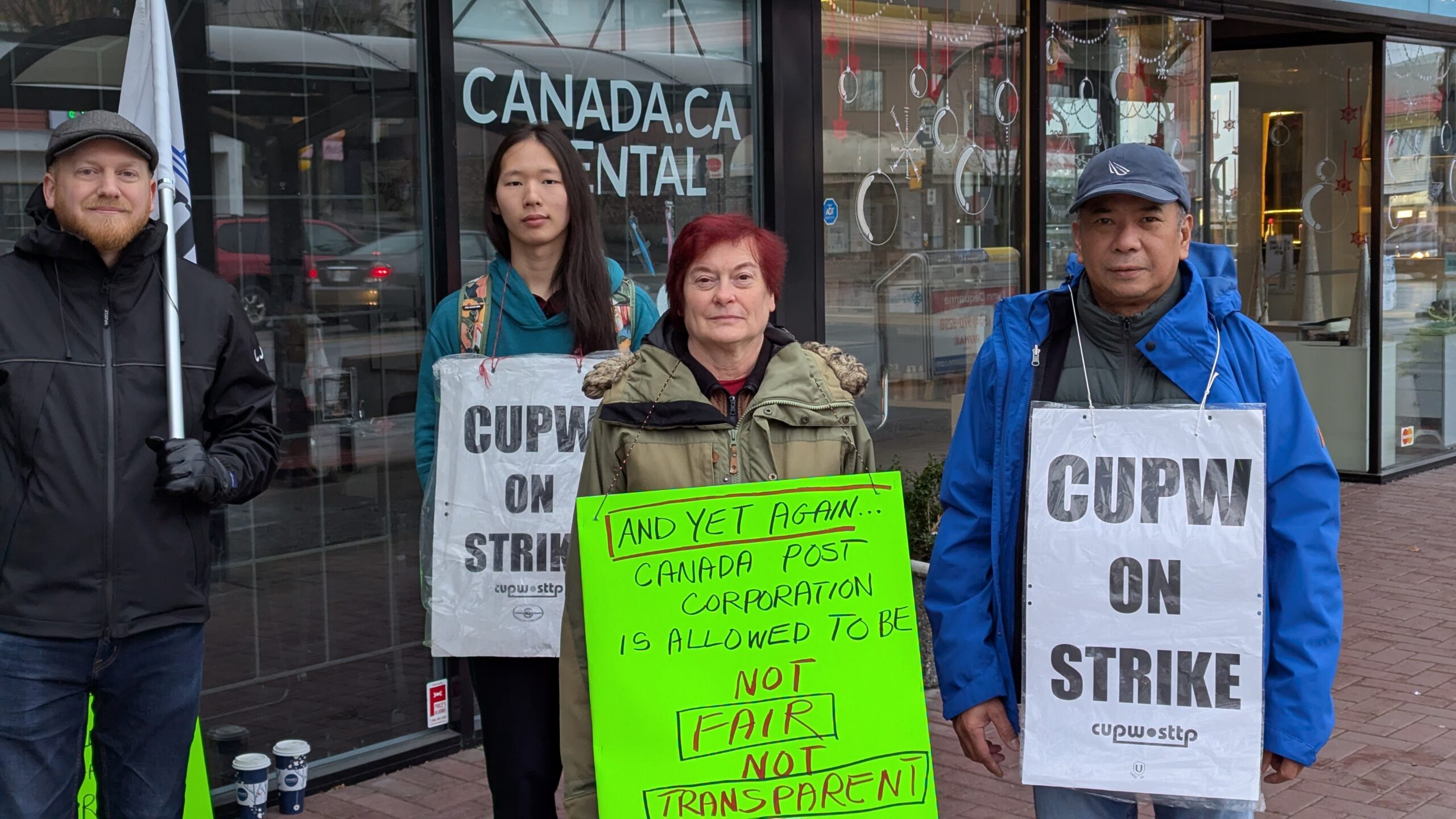On Monday morning, postal workers and their allies rallied at the constituency offices of Liberal MPs across B.C.’s Lower Mainland, condemning the back-to-work order delivered by the Canadian Industrial Relations Board (CIRB) on Sunday night. Labour Minister Steve MacKinnon initiated the back to work process last Friday, when he invoked Section 107 of the Labour Code and called on the CIRB to send postal workers back to work, extending their current contract to May 2025.
Postal workers are denouncing the call by the Labour Minister as another instance of a pattern of infringing on workers’ right to strike. “There’s no way this can be seen as any kind of movement towards where the union is at in terms of our demands,” said Doug Kellam, Canadian Union of Postal Workers (CUPW) shop steward and letter carrier, in an interview with The North Star.
“He [Minister MacKinnon] is trying to make it seem as if he was coming towards our direction. Giving us a chance to have our say. But I don’t think it’s sincere, and it’s basically a trap to get us back in, when we’ve probably spent a good portion of our strike fund. So if we have to go back on strike, we’re going to be in a worse financial position than we are now.”
“The minister has used Section 107 to order workers back to work three times this year already,” continued Kellam. “Management knows full well that all they have to do is wait and get their order. They have not negotiated with us in good faith whatsoever. They have basically just been stalling, and they’ve been stalling for over a year.”

The collective agreements between Canada Post and CUPW expired on January 31, 2024, for urban carriers and on December 31, 2023, for rural and suburban carriers.
Stephen von Sychowski, the president of the Vancouver & District Labour Council, who attended a picket outside the constituency office of Liberal M.P. Terry Beech, questioned whether the right to strike even exists in Canada anymore:
“We’ve seen this time and time again with successive Liberal and Conservative governments, that the right to strike, the basic fundamental charter rights, that working-class people have, or are supposed to have in this country, are in place as long as it’s not inconvenient, as long as it’s not unprofitable. And as soon as it is, they step in with legislation. Whether it’s legal or not, they’re prepared to do it. And they know the damage will be done by the time it’s fought in the courts.”

In this context, Kellam says some workers are considering defying the back-to-work order:
“There are locals and depots here that are holding votes to defy back to work orders. We know that the Saskatoon local has voted at their general membership meeting to defy. We know that Edmonton is in the process of holding votes of its members on the issue of defying the legislation. And currently that is in favour.”
The urgent need for the workers’ movement to figure out a way to respond to the attack on the right to strike is not lost on von Sychowski:
“The employers and the government have a big hammer. It’s not an easy fight when folks are faced with injunctions and threats to their livelihood in the way that they are these days, in these cases. But the only way we’re going to be able to counter that is by organization, by our willingness to stand up together in these instances, and to take actions in solidarity.”

